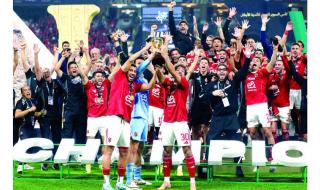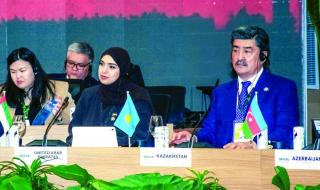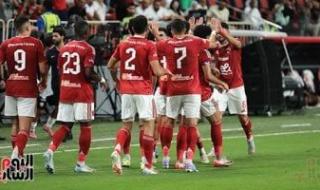يعد المونولوج (كلمة لاتينية تعني الأداء المنفرد) من الفنون التي غزت العالم العربي قديماً، وجذبت الجماهير، لأنه اعتمد على الغناء القصير المصاحب للموسيقى السريعة، ناهيك عن طبيعته الكوميدية الساخرة والناقدة للأحوال الاجتماعية والسياسية بشكل طريف. ومن روّاده الأوائل في مصر الفنان سيد درويش، الذي نظم ولحن العديد من المونولوجات (الطقطوقات) في عشرينات القرن الماضي، الأمر الذي شجع فنانين مصريين آخرين على اقتفاء أثره لاحقاً، فظهرت أسماء ارتبطت بهذ اللون الغنائي الساخر مثل محمود شكوكو وثريا حلمي وإسماعيل يس وسيد سليمان ومحمد كامل، وصولاً إلى أحمد غانم وسيد الملاح ومسعد القص وغيرهم. وكانت المونولوجات تُؤدى في البداية على المسارح، ثم سُجلت على الأسطوانات، قبل أن تنتقل إلى السينما والإذاعة والتلفزيون.
من روّاد هذا الفن الأوائل في السعودية الفنان عبدالعزيز الهزاع وسعد التمامي وحسن دردير (مشقاص). أما رائد المونولوج في الكويت بلا منازع فهو الفنان محمد حمود الظفيري المعروف باسم «محمد الويس»، الذي سنوثق سيرته وأعماله في هذه المادة، استناداً إلى ما كُتب عنه في الصحافة الكويتية والخليجية، خصوصاً صحيفة «الجريدة» في عددها ليوم 23/8/2011، وما هو مدون في الأدبيات الفنية الكويتية.
لم يكن غريباً أن تشهد الكويت منذ ستينات القرن العشرين ظهور هذه الموهبة الفذة التي جمعت في شخصها قدرات متنوعة شملت رياضة كرة القدم وغناء المونولوج وكتابة الأغاني وتلحينها والإخراج التلفزيوني وإعداد البرامج وتقديمها، وأشياء أخرى كثيرة ذات صلة بالفنون والإبداع. ذلك أن الكويت بمجرد استقلالها في عام 1961 أولت اهتماماً ورعاية كبيرين بما يُسمى اليوم «القوة الناعمة» فأنفقت بسخاء على المسرح والتلفزيون والفرق الموسيقية والتراث الشعبي، وابتعثت الموهوبين من بنينها وبناتها إلى الخارج للدراسة وصقل مواهبهم في أفضل المعاهد والكليات العربية والأجنبية، واستعانت بعباقرة الفن في مصر لإحداث حركة ثقافية وفنية غير مسبوقة في المنطقة، إلى درجة أن تحولت الكويت في السبعينات إلى منارة للثقافة والإبداع والتنوير، ومحجة لكل أبناء الخليج الموهوبين الباحثين عن الشهرة والانطلاق والنجومية، كما كان حال مصر بالنسبة للعرب. ويعود الفضل في ما اتخذته الكويت من قرارات وقتذاك لثلة من رجالاتها المتعلمين المخلصين من أمثال عبدالعزيز حسين وأحمد مشاري العدواني وحمد عيسى الرجيب الذين عملوا بدعم غير محدود من وزير الإعلام الأسبق المغفور له الشيخ جابر العلي الصباح.
وُلد محمد حمود الظفيري المكنى «أبوعبدالله» في الكويت في 1950، وفيها أتم تعليمه النظامي بمراحله الثلاث، وأثناء سنوات دراسته تلك كان شعلة من النشاط، يمارس التمثيل والغناء والعزف على خشبة المسرح المدرسي وفي المخيمات الكشفية وخلال الرحلات و«الكشتات» البرية والبحرية، كما برزت مواهبه في فن المونولوج من خلال «نادي الرازي» الذي كان يلتحق به في عطلات الصيف مع فرقة موسيقية مكونة من زملائه الشباب من أمثال الفنانين المعتزلين حالياً عبدالرحمن السريع وحمدان السريع. إلى ذلك انشغل الويس بلعبة كرة القدم. فقد كان من البارزين والموهوبين في هذه اللعبة الساحرة إبان سنوات دراسته، ثم لعبها لاحقاً مع نادي السالمية الرياضي في خانة حراسة المرمى. وفي هذا النادي، حدث أن افتقده ذات يوم أحد المدربين، فطلب أن يُؤتى به ولم يكن يعرف اسمه، ما جعله يطلق عليه «الويس» على اسم عالم أحياء أجنبي كان شبيهاً له في الملامح والقامة. ومذّاك التصق به هذا الاسم، وراح أصدقاؤه وزملاؤه ينادونه «محمد الويس».
في الحفل الختامي لأحد المخيمات الكشفية، التي أقيمت سنة 1967 بحضور رائد التعليم والأب الروحي للمعارف الكويتية وأول وزرائها الشيخ عبدالله الجابر الصباح رحمه الله، قدم الويس مونولوجين بمصاحبة فرقة موسيقية من زملائه. كان المونولوج الأول بعنوان «مد ريولك قد لحافك»، ومطلعه:
مد ريولك قد لحافك، لا تطالع غيرك
تتعب، هذا وذاك ما يفيدونك
قد فلوسك كل واشرب ومدّ ريولك
أما المونولوج الثاني فقد كان بعنوان «بنات بلادك أحسن» ومطلعه:
باللي تخطب من بره
بنات بلادك أحسن لك
خرج صاحبنا من هذه التجربة بهدية كانت عبارة عن ميدالية و100 دينار. علاوة على ذلك، وتقديراً من راعي الحفل لأدائه الجيد، أمر الشيخ عبدالله الجابر مسؤولي الإذاعة الكويتية بتبنيه فنياً وإتاحة الفرصة أمامه لتسجيل أعماله الغنائية في استوديو الإذاعة بمصاحبة فرقتها الموسيقية. وهكذا سجل الويس في 1968، وهو في سن الـ18 مونولوجات في استوديوهات الإذاعة، ثم صورها في التلفزيون، وكان من بينها مونولوج «مدّ ريولك» آنف الذكر، ومونولوج «عجايب الدهر»، علاوة على مونولوج «شيلي قشك» (ألحان وكلمات ثامر السيار) الذي شاركه في أدائه الفنان الراحل عبدالعزيز النمش، وبسبب مشاركة النمش انتشر العمل وانتشر اسم الويس معه في الأوساط الفنية وبات أشهر من نار على علم. وتعتبر الأدبيات الفنية الكويتية مونولوج «شيلي قشك» أحد أشهر المونولوجات التي قُدمت في تاريخ الحركة الغنائية الكويتية الحديثة، وقد اشترته إحدى الشركات الفنية وطبعته على أسطوانات وما زال يُذاع إلى يومنا هذا.
حتى تلك الفترة كان فن المونولوج مجرد هواية من هوايات الويس الكثيرة، لكنه وجد نفسه غارقاً في هذا اللون الغنائي، ومُطالباً بتقديم المزيد إرضاء لجمهور راحت أعداده تزداد تدريجياً، وتجاوباً أيضاً مع صديقه الشاعر يوسف الجراح الذي أعد له كلمات مونولوجات كثيرة، علماً أن أول من كتب له نص مونولوج ليؤديه هو عبدالجبار مزعل.
في البداية، دأب الويس على تقديم أعماله من خلال الإذاعة والتلفزيون، لكنه بدأ بعد ذلك في تقديمها من خلال حفلات جماهيرية عامة، على الرغم مما كان يشعر به من خجل وارتباك، وأول حفلة عامة شارك فيها كانت حفلة خيرية أقامتها السيدة لولوة القطامي في أوائل السبعينات على خشبة مسرح الأندلس، وشاركه فيها عبدالمحسن المهنا وليلى عبدالعزيز من الكويت، ونجاة الصغيرة من مصر، وقد بكى الويس في هذا الحفل تأثراً بتصفيق وترحيب الجمهور الغفير له. أما الحفل الثاني الذي شارك فيه فقد كان حفلاً غنائياً في نادي اليرموك الرياضي بمناسبة فوز الأخير بكأس الأمير، وفيه قدم الويس أغنية خاصة، من ألحانه وكلمات الشاعر يوسف ناصر، مطلعها:
رحت اسأل يالربع شنهو الخبر، شنهي هالزينة اللي تطري بالبحر
قالوا لي كأس الأمير طار ببساط الحرير شللوا فيه اللواعيب السمر
أما أول رحلة خارجية له فقد كانت إلى سلطنة عمان للمشاركة في عيد جلوس السلطان قابوس رحمه الله، مع مصطفى أحمد وعايشة المرطة من الكويت، ومحمد زويد من البحرين، وعادل مأمون من مصر، وأبو بكر سالم من السعودية. تلتها رحلة إلى القاهرة، شارك خلالها صديقه المصري الملحن مصطفى العوضي في تقديم بعض المونولوجات في القاهرة، كان بعضها من ألحان العوضي مثل الأغنية الوطنية «يا كويت»، والأغنية الرياضية «أهلي والنبي أهلي».
شكلت فترة أوائل السبعينات من القرن العشرين منعطفاً مهماً في مسيرة الويس المونولوجية، ففيها تعاون مع الملحن الكويتي الكبير وصاحب البصمات الخالدة في تطوير الفن الغنائي بدولة الكويت المرحوم عبدالرحمن البعيجان في إطلاق مونولوج «يا طوير هندي» من كلمات الشاعر الغنائي محمد المحروس، يقول مطلعه:
ياطوير هندي، عندك ما عندي
عندك سيارة، فيها الخســــارة
من بعد البعيجان ونجاح تلحينه «يا طوير هندي» نجاحاً لافتاً، تعاون الويس مع ملحنين وشعراء آخرين كثر. إذ قدم في 1974 مونولوج «أشكال وألوان» من تأليفه وألحان المرحوم حمدي الحريري، وفي 1975 قدم من كلمات عبداللطيف البناي وألحان يوسف المهنا، مونولوجات «طارت الطيارة» و«راحة البال» من كلمات سليمان المرداس وألحان عبدالله بوغيث، و«البمبرة» من كلمات يوسف ناصر. وفي 1968 قدم مونولوج «درب السلامة» المروري من كلمات يوسف ناصر، وسجل في 1978 مونولوج «يالمشتقي» من كلمات عبدالأمير عيسى وألحان راشد السلطان. كما تعاون مع الفنان القدير غنام الديكان في أكثر من عمل فني، ومع الشاعر عبدالرحمن النجار في مونولوج «سمعوا هالقصة»، ومع الملحن خالد الزايد في مونولوج «شاي الضحى». ومن بين أعماله الشهيرة الأخرى مونولوجات: «ضاع الديك» و«يا ساتر من السرعة» و«المينون» و«العزوبية» و«السيجارة» و«الدنيا مظاهر» و«لا يغرك شراعه»، وغيرها من المونولوجات التي تناولت التغيرات والمشاكل الاجتماعية التي طرأت على المجتمع الكويتي بصفة خاصة.
وعلى الرغم من أن الويس اعتمد في الجلّ الأعظم مما غناه على ألحان غيره، إلا أنه خاض مجال التلحين أيضاً، في دليل آخر على تشعب مواهبه، فلحن مونولوجات لنفسه ولفنانين آخرين مثل البحريني باسط البوسطة والكويتي عبدالمجيد عبدالقادر. مع ملاحظة أن توجهه هذا نحو التلحين لغيره جاء في السنوات الأخيرة من مشواره مع المونولوج، أي حينما وجد أن المونولوج فقد دوره وتأثيره وجمهوره، خصوصاً مع ظهور نماذج أساءت لهذا اللون الغنائي الساخر، بالحركات السخيفة والملابس المزركشة والنطنطة على المسرح كالأراجوز، على حد قوله.
ومما لا شك فيه أن الويس أحدث في الإذاعة والتلفزيون الكويتيين حراكاً من نوع خاص، فكافأته وزارة الإعلام بابتعاثه على نفقة الدولة إلى مصر لإكمال دراسته الجامعية. وبالفعل سافر إلى هناك، وتخرج من كلية إدارة الأعمال بجامعة القاهرة في العام الدراسي 1982/1981، كما درس في المعهد العالي للفنون الموسيقية بمصر، الذي منحه الدبلوم العالي، ثم تابع دراسته في بريطانيا، فنال دبلوم الإنتاج والإخراج من تلفزيون لندن.
بعد عودته إلى وطنه مكللاً بالشهادات، تمّ تعيينه في بادئ الأمر مساعد مخرج، قبل أن يترقى ويصبح مخرجاً، ثم أصبح مديراً لإدارة التشغيل والتنفيذ والمتابعة في «القناة الثالثة» الرياضية، وبعدها صدر أمر بتعيينه مستشاراً في وزارة الإعلام، وظل كذلك إلى أن تقاعد من العمل الحكومي. وإبان عمله مخرجاً في التلفزيون قام بإخراج برامج منوعات كثيرة منها: «عالم السينما» و«سهرة منوعة» و«مجلة التلفزيون» و«لقاء الخميس» و«أنتم والمنوعات» و«أسفرت». كما أخرج تغطيات للاحتفالات الرسمية وبرامج توثيقية عن بعض مناطق الكويت مثل جزيرة فيلكة، وأخرى عن الرواد الأوائل في الكويت تحت عنوان «رفقاء الدرب».
تقاعد الويس من العمل الحكومي، لكنه لم يتقاعد عن الفن والإبداع. صحيح أنه ابتعد عن غناء المونولوج والإخراج للتلفزيون، لكن الصحيح أيضاً أنه اتجه إلى إعداد وتقديم البرامج التلفزيونية والإذاعية، خالعاً بذلك على نفسه صفة المذيع ومقدم البرامج، ومنضماً إلى جيش الإعلاميين. حيث نجح في إعداد وتقديم برامج المسابقات «غطاوي» بدءاً من عام 2000 بمشاركة المذيعتين ورود وحليمة بولند والممثلة البحرينية زينب العسكري، كما أعد وقدم برنامج «هذا الكويت» وسهرات منوعة. إلى ذلك مدّ نشاطه إلى الإذاعة الكويتية ومحطة الإف إم، فقدم من خلالها برامج مثل: «نجوم على الطريق» و«البشتخته» و«الدروازة» و«ليالي الديرة» و«عتيج الصوف» و«ضيوف الرحمة»، وغيرها.
إبان فترة الاحتلال العراقي الغاشم لدولة الكويت، انتقل الويس إلى دولة الإمارات العربية المتحدة مصطحباً عائلته المكونة من زوجته وأبنائه، ومن هناك قدم البرنامج الإذاعي اليومي «رسالتي»، لكن العمل الجبار الذي قام به جاء بعد التحرير، حينما جال على محطات وقنوات أبوظبي ودبي والدوحة ومسقط وغيرها لجمع وجلب الأشرطة الغنائية والموسيقية والمسرحية والبرامجية التي فقدتها مكتبة تلفزيون الكويت بسبب الغزو العراقي، فتمكن من جلب نحو خمسة آلاف شريط. وقد كافأته الحكومة على هذا المجهود في حينه بتعيينه مديراً للقناة الثالثة الرياضية.
رُصد عن الويس قوله في ما يتعلق بفن المونولوج: «لا يُطلب منك أن تلبس لباس مهرج وتظهر أمام الناس، أو أن تشوه نفسك وتلبس لباس امرأة لكي تعمل مونولوجاً». أما عن مخرج المنوعات فقال إن عليه «أنْ يدرس الموسيقى، وإنْ لم يدرس يجب أن تكون عنده خلفية موسيقية، وإنْ لم تكن يجب أن يكون متذوقاً فنياً للموسيقى».
وأخيراً، لا بد من الإشارة إلى أن الويس تم تكريمه عدة مرات من جهات مختلفة محلية وخليجية وعربية، منها تكريمه سنة 2009 في مهرجان القاهرة الدولي للتلفزيون والإذاعة.
The monologue (a Latin word meaning solo performance) is one of the arts that invaded the Arab world long ago and attracted audiences, as it relied on short singing accompanied by fast music, not to mention its comedic, satirical nature that critiques social and political conditions in a humorous way. Among its early pioneers in Egypt was the artist Sayed Darwish, who composed and arranged many monologues (taqtuqat) in the 1920s, which encouraged other Egyptian artists to follow in his footsteps later on. Names associated with this satirical musical genre emerged, such as Mahmoud Shokoko, Thuraya Helmy, Ismail Yassin, Sayed Suleiman, and Mohamed Kamel, leading up to Ahmed Ghanem, Sayed Al-Mallah, Masoud Al-Qass, and others. Monologues were initially performed on stage, then recorded on discs, before transitioning to cinema, radio, and television.
Among the early pioneers of this art in Saudi Arabia were the artists Abdulaziz Al-Hazaa, Saad Al-Tamami, and Hassan Dardir (Mishqas). As for the undisputed pioneer of the monologue in Kuwait, it is the artist Mohamed Hamoud Al-Dhafiri, known as "Mohamed Al-Wais," whose biography and works we will document in this material, based on what has been written about him in the Kuwaiti and Gulf press, especially the newspaper "Al-Jarida" in its issue dated 23/8/2011, and what is recorded in Kuwaiti artistic literature.
It was not surprising that Kuwait witnessed the emergence of this exceptional talent since the 1960s, which combined diverse abilities in football, monologue singing, songwriting, composing, television directing, program preparation, and presentation, along with many other things related to arts and creativity. This is because Kuwait, upon its independence in 1961, paid great attention and care to what is now called "soft power," generously spending on theater, television, musical bands, and folk heritage, sending talented boys and girls abroad to study and refine their talents at the best Arab and foreign institutes and colleges, and enlisting artistic geniuses from Egypt to create an unprecedented cultural and artistic movement in the region, to the extent that Kuwait became, in the 1970s, a beacon of culture, creativity, and enlightenment, a destination for all talented Gulf youth seeking fame and stardom, just as Egypt was for Arabs. The credit for the decisions taken by Kuwait at that time goes to a group of its educated and dedicated men, such as Abdulaziz Hussein, Ahmed Mashari Al-Adwani, and Hamad Isa Al-Rujib, who worked with unlimited support from the late Minister of Information Sheikh Jaber Al-Ali Al-Sabah.
Mohamed Hamoud Al-Dhafiri, nicknamed "Abu Abdullah," was born in Kuwait in 1950, where he completed his formal education through its three stages. During those school years, he was a bundle of energy, engaging in acting, singing, and playing on stage at school events, scouting camps, and during trips and outdoor and marine excursions. His talents in the art of monologue also emerged through the "Al-Razi Club," which he joined during summer vacations with a musical band made up of his young peers, including currently retired artists Abdulrahman Al-Sari and Hamdan Al-Sari. Additionally, Al-Wais was involved in playing football, being one of the prominent and talented players during his school years, later playing as a goalkeeper for Al-Salmiyah Sports Club. One day, a coach at this club missed him and requested that he be brought in without knowing his name, which led him to call him "Al-Wais," after a foreign biologist who resembled him in features and stature. Since then, this name stuck with him, and his friends and colleagues began to call him "Mohamed Al-Wais."
At the closing ceremony of one of the scouting camps held in 1967, attended by the pioneer of education and the spiritual father of Kuwaiti knowledge and its first minister Sheikh Abdullah Al-Jaber Al-Sabah, may he rest in peace, Al-Wais presented two monologues accompanied by a musical band of his peers. The first monologue was titled "Mad Riyolak Qad Lihafak," with the opening lines:
Mad Riyolak Qad Lihafak, la tatal'a ghayrak
Ta'tab, hadha wa dhak ma yufidunak
Qad flusak kul washreb wa mad Riyolak
The second monologue was titled "Banat Biladik Ahsan," with the opening lines:
Bil-li takhtab min barra
Banat Biladik Ahsan lak
Our friend emerged from this experience with a gift that was a medal and 100 dinars. Moreover, in appreciation from the event's sponsor for his good performance, Sheikh Abdullah Al-Jaber ordered the officials of the Kuwaiti radio to adopt him artistically and provide him with the opportunity to record his musical works in the radio studio with their musical band. Thus, Al-Wais recorded in 1968, at the age of 18, monologues in the radio studios, then filmed them for television, including the aforementioned monologue "Mad Riyolak" and the monologue "Ajayib Al-Dahr," in addition to the monologue "Shili Qashk" (music and lyrics by Thamer Al-Sayar), which he performed with the late artist Abdulaziz Al-Namash. Due to Al-Namash's participation, the work spread, and Al-Wais's name became well-known in artistic circles, becoming more famous than fire on a mountain. Kuwaiti artistic literature considers the monologue "Shili Qashk" one of the most famous monologues presented in the history of modern Kuwaiti musical movement, and it was purchased by a production company and printed on discs, still being broadcast to this day.
Until that period, the art of the monologue was merely one of Al-Wais's many hobbies, but he found himself immersed in this musical genre, being demanded to present more to satisfy an audience that was gradually increasing in number, and also responding to his friend, poet Youssef Al-Jarah, who prepared many monologue lyrics for him, knowing that the first person to write a monologue text for him to perform was Abdul Jabbar Maz'al.
Initially, Al-Wais used to present his works through radio and television, but he later began to present them through public concerts, despite feeling shy and nervous. The first public concert he participated in was a charity event held by Mrs. Lulwa Al-Qatami in the early 1970s on the stage of Al-Andalus Theater, where he was joined by Abdul Mohsen Al-Muhanna, Leila Abdulaziz from Kuwait, and Najat Al-Saghira from Egypt. Al-Wais cried during this event, moved by the applause and warm welcome from the large audience. The second concert he participated in was a musical event at Al-Yarmouk Sports Club to celebrate the latter's victory in the Amir's Cup, where Al-Wais presented a special song, composed and written by poet Youssef Nasser, with the opening lines:
Rahit as'al ya al-rub' shenho al-khabar, shenhi hal-zina illi tatri bil-bahr
Qalu li Kas al-Amir tar bibisat al-harir shalla fi al-lawa'ib al-sumr
As for his first trip abroad, it was to the Sultanate of Oman to participate in the Sultan Qaboos's accession anniversary, along with Mustafa Ahmed, Aisha Al-Murtah from Kuwait, Mohamed Zoweid from Bahrain, Adel Mamoun from Egypt, and Abu Bakr Salem from Saudi Arabia. This was followed by a trip to Cairo, where he collaborated with his Egyptian friend, composer Mustafa Al-Awadi, to present some monologues in Cairo, some of which were composed by Al-Awadi, such as the patriotic song "Ya Kuwait," and the sports song "Ahli wa Al-Nabi Ahli."
The early 1970s marked an important turning point in Al-Wais's monologue career, during which he collaborated with the great Kuwaiti composer and a key figure in the development of musical art in Kuwait, the late Abdul Rahman Al-Baijan, to launch the monologue "Ya Tweer Hindi," with lyrics by the lyricist Mohamed Al-Mahrous, which opens with:
Ya Tweer Hindi, 'indak ma 'andi
'indak sayara, fiha al-khasara
After Al-Baijan and the remarkable success of his composition "Ya Tweer Hindi," Al-Wais collaborated with many other composers and poets. In 1974, he presented the monologue "Ashkal wa Alwan," written by himself and composed by the late Hamdi Al-Hariri. In 1975, he presented monologues "Tarat Al-Tayara" and "Rahat Al-Bal," with lyrics by Abdul Latif Al-Bunay and music by Youssef Al-Muhanna, as well as "Al-Bambara," with lyrics by Youssef Nasser. In 1968, he presented the traffic monologue "Darb Al-Salama," with lyrics by Youssef Nasser, and recorded the monologue "Ya Al-Mushtaqi" in 1978, with lyrics by Abdul Amir Isa and music by Rashid Al-Sultan. He also collaborated with the esteemed artist Ghanam Al-Dikan in more than one artistic work, with poet Abdul Rahman Al-Najjar in the monologue "Sami'u Hal-Qissa," and with composer Khalid Al-Zayed in the monologue "Shay Al-Duha." Among his other famous works are the monologues: "Da'a Al-Dik," "Ya Sater Min Al-Sur'a," "Al-Mainoon," "Al-Azobiya," "Al-Sigara," "Al-Dunya Mazahir," and "La Yghurak Shar'ah," among others that addressed the changes and social issues that arose in Kuwaiti society in particular.
Although Al-Wais relied mostly on the melodies of others for his songs, he also ventured into composing, further demonstrating the breadth of his talents. He composed monologues for himself and for other artists such as the Bahraini Basit Al-Bosta and the Kuwaiti Abdul Majid Abdul Qader. It is noteworthy that this turn towards composing for others came in the later years of his monologue career, when he found that the monologue had lost its role, impact, and audience, especially with the emergence of models that negatively affected this satirical musical genre, with silly movements, flashy clothing, and clown-like antics on stage, as he put it.
There is no doubt that Al-Wais created a special movement in Kuwaiti radio and television, which rewarded him by sending him on a state-sponsored scholarship to Egypt to complete his university studies. He indeed traveled there and graduated from the College of Business Administration at Cairo University in the academic year 1981/1982, and also studied at the Higher Institute of Musical Arts in Egypt, which granted him a higher diploma, then continued his studies in Britain, obtaining a diploma in production and directing from London Television.
Upon his return to his homeland, adorned with certificates, he was initially appointed as an assistant director, before being promoted to director, and then became the director of the operation, execution, and follow-up department at "Channel Three" sports, after which he was appointed as a consultant in the Ministry of Information, remaining so until his retirement from government work. During his tenure as a director in television, he directed many variety programs, including: "Alam Al-Sinema," "Sahra Munawwa'a," "Television Magazine," "Thursday Meeting," "Antum wa Al-Munawwat," and "Asfarat." He also directed coverage of official celebrations and documentary programs about some areas of Kuwait, such as Failaka Island, and others about the early pioneers in Kuwait under the title "Rufaqa' Al-Darb."
Al-Wais retired from government work, but he did not retire from art and creativity. While it is true that he distanced himself from singing monologues and directing for television, it is also true that he turned to preparing and presenting television and radio programs, thus taking on the role of a broadcaster and program presenter, joining the ranks of media professionals. He succeeded in preparing and presenting the competition programs "Ghatawi" starting in 2000, in collaboration with the female presenters Roud and Halima Boland and Bahraini actress Zainab Al-Askari, and he also prepared and presented the program "This is Kuwait" and various evening shows. Additionally, he extended his activities to Kuwaiti radio and FM stations, presenting programs such as: "Nojoom Ala Al-Tariq," "Al-Bashtakhta," "Al-Darwaza," "Layali Al-Dira," "Atij Al-Suf," "Duyuf Al-Rahma," and others.
During the period of the brutal Iraqi occupation of Kuwait, Al-Wais moved to the United Arab Emirates with his family, consisting of his wife and children, and from there he presented the daily radio program "Risalati." However, the monumental work he accomplished came after liberation, when he traveled to Abu Dhabi, Dubai, Doha, Muscat, and other stations and channels to collect and bring back the musical, theatrical, and program tapes that the Kuwait Television library lost due to the Iraqi invasion, managing to bring back about five thousand tapes. The government rewarded him for this effort at the time by appointing him as the director of Channel Three sports.
Al-Wais was quoted regarding the art of the monologue: "You are not asked to wear a clown's outfit and appear before people, or to distort yourself and wear women's clothing to perform a monologue." As for the variety program director, he stated that he must "study music, and if he hasn't studied, he should have a musical background, and if he doesn't, he should be an artistic connoisseur of music."
Finally, it is worth noting that Al-Wais has been honored several times by various local, Gulf, and Arab entities, including his recognition in 2009 at the Cairo International Television and Radio Festival.
ملحوظة: مضمون هذا الخبر تم كتابته بواسطة عكاظ ولا يعبر عن وجهة نظر مصر اليوم وانما تم نقله بمحتواه كما هو من عكاظ ونحن غير مسئولين عن محتوى الخبر والعهدة علي المصدر السابق ذكرة.






